|
WEAR GENERATES WEAR |
||
Clean your oil with our ultra-fine filtration systems, protect your machine

|
FUEL FILTRATION SYSTEMS |
|
IMPROVE FUEL ECONOMY, PROTECT INJECTORS AND FUEL PUMP FROM WEAR, EXTEND OEM FUEL ELEMENT LIFE |
|
WHY IS FUEL CLEANLINESS IMPORTANT Today's engines must conform to environmental regulations which stipulates to reduce exhaust emmissions almost down to zero. Engine producers are faced with challenges that reduce combustion temperature. As a result, the fuel must be atomised perfectly which requires 3-5 micron injection under very high pressures around 2000 bars. The components are machines within very fine tolerences. So injectors and pressure pumps become more vulnerable to contamination in fuel. |
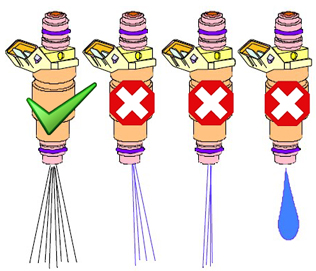
|

|
|
Common rail engines pump fuel under very high pressure and force it through very fine injector openings (3-5 microns). The fuel used is ultra-low sulphure diesel which reduce lubrication capability of the fuel. Therefore fuel cleanliness is of utmost importance. Clean purified fuel will allow all of the fuel to combine with air and improve fuel economy. This will result in less exhaust emmission. Dirty fuel will also accelerate injector wear since the ultra-low sulphure diesel fuel's lubrication capability is reduced. Good filtration will pay-back its investment as the users eport fuel economies of 3 - 7 %. |
| GOOD FILTRATION WILL IMPROVE POWER, FUEL ECONOMY AND REDUCE EXHAUST EMMISSIONS | ||
 |
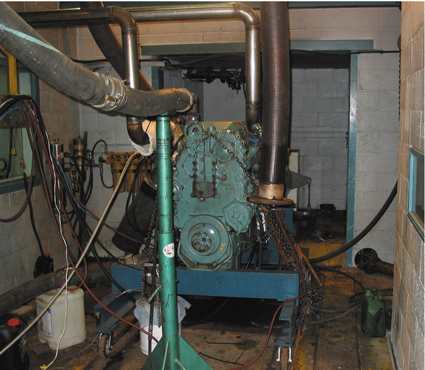 |
|
|
Fuels used in the testing at Berkeley were Ultra Low Sulphur Diesel (ULSD), and Biodiesel. The two blends of Biodiesel used in the testing were B20 and B100. When connected to FTA's fuel and oil filter systems lower NOx readings were recorded. |
T he engine tested was a 1993 Detroit Series 60 DDEC Ill both with and without FTA fuel and oil systems on diesel fuel. The test results were as follows:Reduced CO by 29.3%, Reduced C02 by 27.9%, Reduced NOx by 30.6%, Reduced Opacity 19.3%, Increased HP by (14HP) 2.8%, Increased Torque by (31ft lbs) 2.0% |
CAT Gen-Set outputs 725kW at 60Hz and 906 kVA. Two Filter Technology FMF4 fuel filters fitted. The set was run for four hours and with 1,035 hours on the set, the emission readings were taken before and after the filters were fit. The results were: Opacity was reduced by 31.0%, Carbon dioxide (CO2) was reduced by 12.0%, Nitrous oxide (NOx) was reduced by 10.0%, Fuel economy improved by 6.5%. |
|
APPLICATION METHODS |
|||||
| IN-LINE APPLICATION | APPLICATION ON FUEL DISPENSERS AND BOWSER | ||||
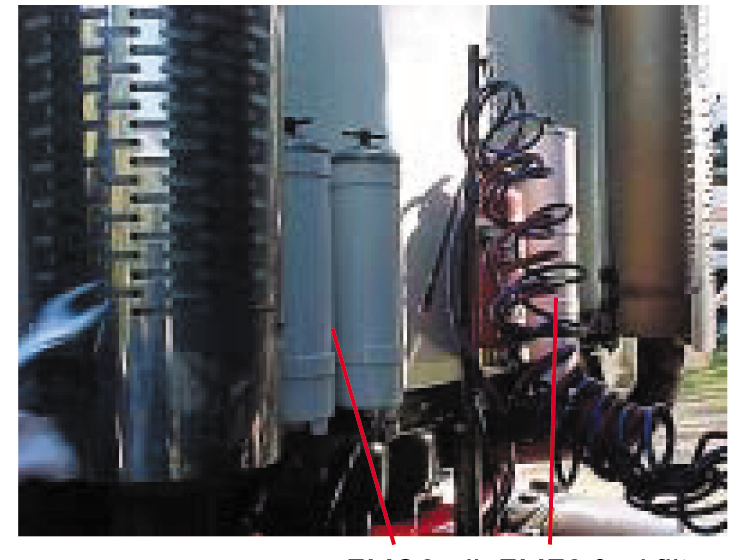 |
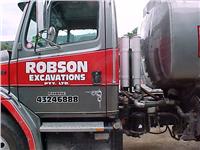 |
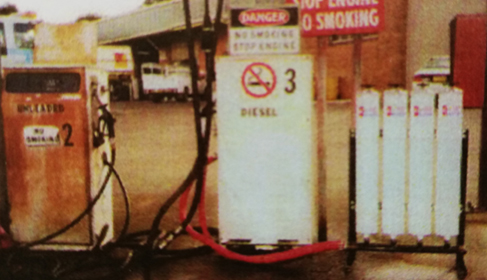 |
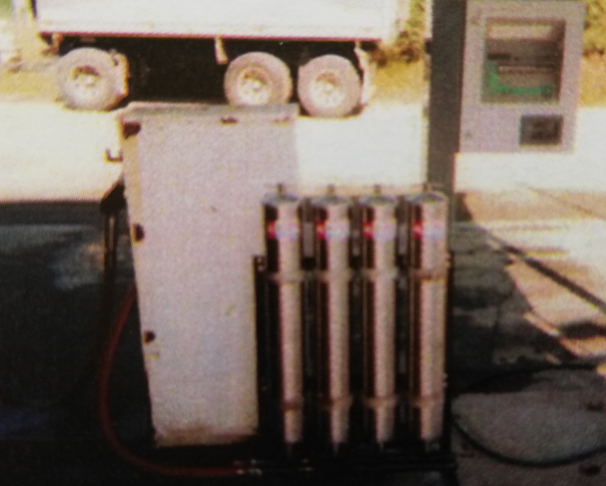 |
||
| In-line application is an effective method where the vehicles and machines are supplying fuel from external sources and where the environment is heavily dusty. | Where the vehicles and machines are fuelled from a local source such as a construction site or a station, fuel filters can be installed on pump outlet or a filtration unit can be used to draw fuel and pump to a clean fuel tank. | ||||
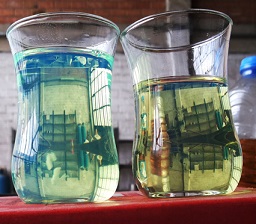
|
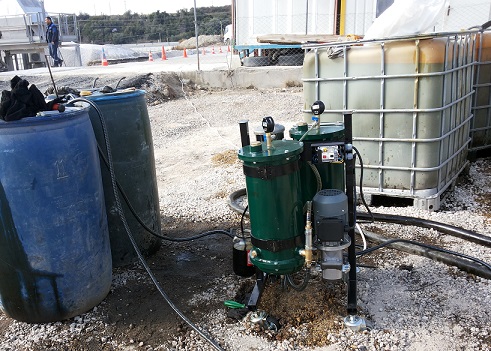
|

|
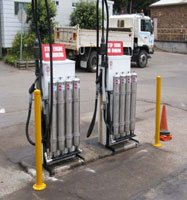
|
| Top left: eurodiesel fuel, right filtered | A filtration unit used to clean fuel in a work site (prefilers are used) | Fuel filters applied on fuel pump outlet or fuel tanks. A water eparator can be used in addition to the filtration unit. | |